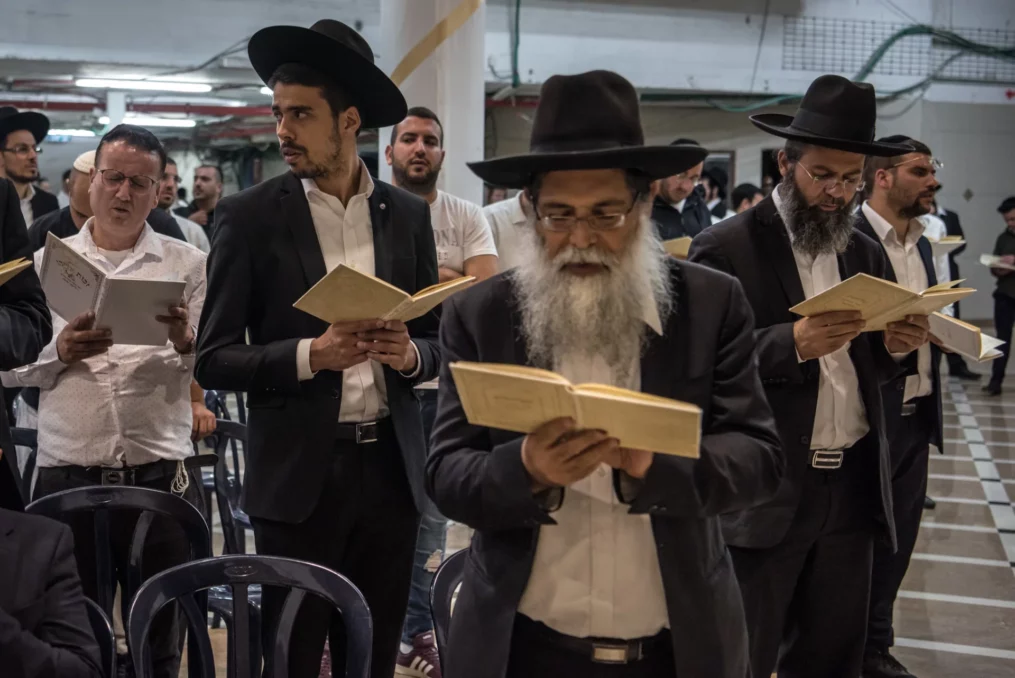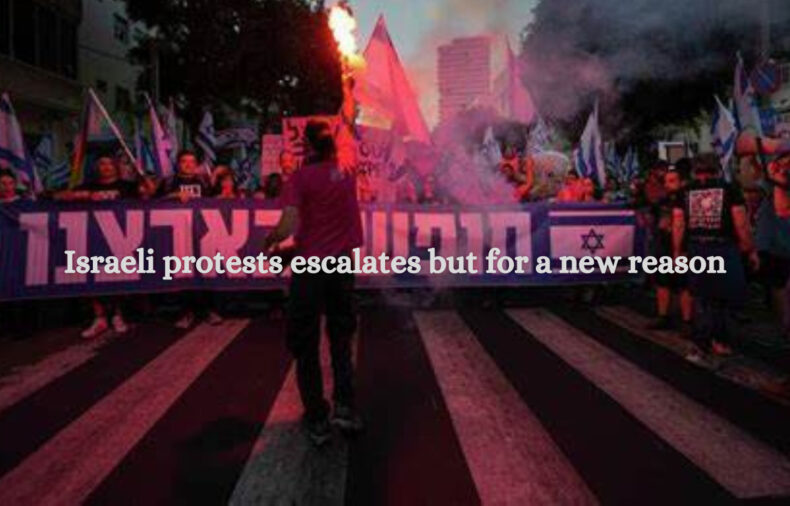Israeli protestors are in full swing to show resentment against the planned judicial reforms proposed by the incumbent right-wing government spearheaded by Benjamin Netanyahu. It’s been 20 weeks, but the zeal of protestors doesn’t seem to retreat at any cost. The anger of citizens has originated from the law which seeks to seize the independence and impartiality of Judiciary which as a result will become puppet in the hands of Parliament if the proposed draft becomes the law.

Figure 1 Image source: Flipboard
Why is today’s protest so significant?
The country that exalts its existence as the only democracy in West Asia is reeling under trail of protests since weeks. Ironically, the protests in Israel seek to save its democratic structure as government is destined to clip the wings of freedom.
But the protests in Haifa today have some added meaning because protestors scattered across the country are emphasizing on “plunder of public coffers” hollowing the state budget which is yet to be given a green signal by the month end. The protestors scream to showcase their agony. According to the protestors, the budget has allocated almost 14 billion shekels to the Ultra-orthodox political parties which is out and out hard earned taxpayers’ money.
The hard-line government’s motives are receiving brickbats from the Finance ministry as well as it believes this strategy won’t be fruitful in the long term.
Who are Ultra-orthodox jews?
According to Pew Research Center survey, roughly all Israeli Jews identify themselves with one of the four denominations: Haredi (“ultra-Orthodox”), Dati (“religious”), Masorti (“traditional”) and Hiloni (“secular”).

Figure 2 Image source: The New York Times
Ultra-orthodox jews or Haredi jews faced immense persecution by holocaust, leading to their dispersion. But today in Israel, ultra-orthodox jews enjoy a special status as a culturally protected minority (Stopler 2016). In general, they refrain from assimilation into modern life and shun any sort of non-Jewish influences .This makes their raison d’être distinct from rest of the majority secular people. They pursue their life according to Jewish law Halakha derived from written and oral torah and dwelling on Torah studies.
It is interesting to note that they avail significant amount of autonomy from the state. Their education system is based on developing “ society of learning men’’ by studying the Torah for lifetime unlike the secular schools where subjects like mathematics, science are taught. This becomes the pretext of their exemption from the compulsory military draft.
According to them, aftermath of holocaust, nothing is left but Torah and they are the legitimate preservers of Judaism abiding by the morals and principles of Jewish tradition. In order to maintain the sanctity of their community, they reside in ghettos separate from secular people where they strictly adhere to Kosher laws, Shabbat and exclude themselves from contemporary sources of entertainments
Why are citizens angry at Ultra-orthodox parties?
As mentioned above, government is planning to dispense large chunk of money to Haredi political parties which is the cause of worry for common citizens, actually the secular Jews in particular. This is because Ultra-orthodox Jews devote their life to religious purposes and study in Yeshivas which means they are not engaged in regular employment. Therefore, State funds the entire community from subsidised living to education system yet state has no control over the modus operandi of the Haredi Jews. This puts burden on the rest of the population as they are indirectly providing monetary assistance to this minority community through taxes which culminated into protests at Haifa.

Figure 3 Image source: Reuters
Upholding the Haredi way of life as sacrosanct is the major goal of Ultra- orthodox political parties. These parties seek to make stringent laws on travelling and transportation during Shabbat, kosher, deferment of serving in military, funding of their traditional education system.
The role of ultra- orthodox political parties can be understood by pondering over the political system of Israel. It has proportional representation system due to which no single party is able to secure a majority. Therefore, a coalition government is formed which makes Haredi parties as kingmakers in the building of coalition. This has not been the scenario since the inception of Israel. It was only after 1977 , when right-wing government came to power, that these parties acquired much significance on the political scene.
They have preserved their interests by passing legal amendments, blocking new additions in Basic Laws as well as acquiring the positions in ministries which serve their purpose strategically. In addition, it has been decried since 1992 in every coalition agreement that while making decisions with reference to State and religion, a consensus should be made, which provides Haredi with veto, that is, they have the privilege to make the decision null and void which contravenes their interest.
Due to the above reasons, government has no choice but to accept the decisions of Haredi parties and give stipend from time to time as well as adhere to the status quo agreement signed in 1947.












